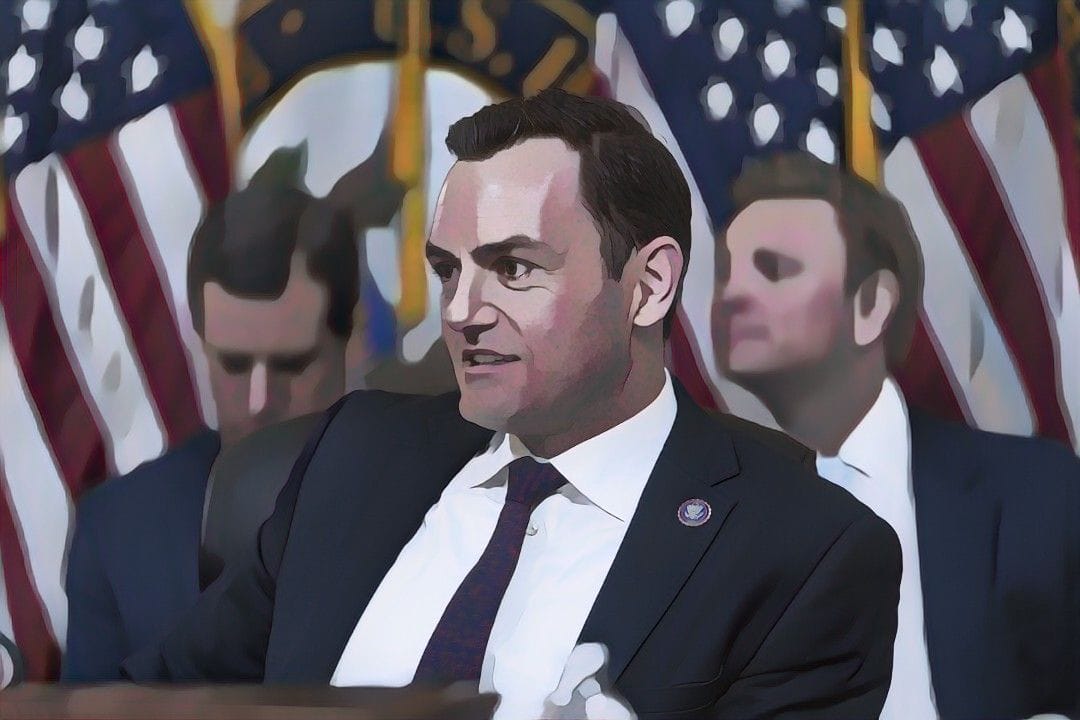House Committee Report Calls for Sweeping Reset of China Economic Ties

The Lede: The House Select Committee on the Chinese Communist Party released a report on Tuesday calling for sweeping revisions to the U.S. and China’s economic and financial ties, including revoking the advantages conferred to Beijing as a result of its accession to the World Trade Organization (WTO) more than two decades ago.
What We Know:
- The 53-page report included nearly 150 recommendations aimed at preserving U.S. economic and tech competitiveness, with a particular focus on the national security ramifications of the competition with China.
- The report says that China’s accession to the WTO ‘undermined and impaired’ the positive expectations that the US and other countries hoped for from expanded trade ties with the country. If the WTO measures were implemented, China would be removed from its current Column 1 tariff classification, which implies regular duty rates on imported goods and the loss of its ‘most favored nation’ trading status. The report does not clarify whether it recommended China be reclassified in its own category or become part of a small group of countries that fall outside of normal trade relations with the U.S. and have higher tariff rates.
- The committee recommends enacting measures to protect U.S. companies and banks from the ripple effects of varying degrees of decoupling. It also recommends the renewal of the ‘China Safeguard mechanism,’ which expired in 2013 and allows tariffs and other restrictions to be imposed on Beijing without having to prove unfair trade practices.
- AI, quantum computing, biotechnology, and other emerging technologies are the focus of the committee’s investment and innovation strategy, whereby the U.S. would aim to attract experts and address concerns regarding research security and intellectual property theft. Mineral and rare-earth element supply chains, especially in the area of battery manufacturing for electric vehicles and energy projects, are another part of the committee’s vision. These include cobalt, manganese, and graphite.
The Background: The House Committee’s report comes after a meeting between U.S. President Joe Biden and Chinese President Xi Jinping on the sidelines of the November APEC summit in San Francisco, where both sides agreed on areas of cooperation and to restore military communications. China’s accession to the World Trade Organization in 2001 was predicated on hopes that the country would continue down the path of liberalization and better relations with the world’s market economies. Reclassifying China would put it among the ranks of countries outside of normal trade relations with the U.S., which include Cuba, North Korea, Russia, and Belarus.
Likely Outcomes:
- The bipartisan support for the committee’s report shows the broad desire among members of Congress for tighter controls over China’s economic interactions with the U.S. and anticipatory positioning for a future crisis, which includes a potential military confrontation. The report is likely to serve as a benchmark for future policies toward China as the assumptions toward the rival superpower become accepted as the status quo and the trajectory of the competition with the U.S. becomes more ingrained as a predicted inevitability.
- The report also makes the recommendation for like-minded countries to form a new multilateral organization that excludes China and other non-market economies if Beijing's approach to economic governance remains outside of the U.S. expectations of WTO standards. This would likely pour fuel on the divergence of economic spheres that are coalescing around the superpowers and bring them closer to decoupling. This would also elevate third countries, such as those in Southeast Asia, in their roles as intermediaries of the bifurcated economies.
Quotables:
“China has never abided by the promises it made when it joined the WTO and when we moved to permanent normal trade relations. And as a consequence, we find ourselves dangerously dependent on the PRC in key areas — areas that they could be weaponized in the event of a crisis.” – Mike Gallagher, Republican representative from Wisconsin and chairman of the House Select Committee
“One of the theories that the C.C.P. has about the United States is that we are divided, that we are tribal, that we are incapable of coming together to deal with challenges,” said Representative. On this particular issue of competition between the United States and the C.C.P., we are of one mind.”– Raja Krishnamoorthi Democratic Representative from Illinois and senior Democratic member of the House Select Committee
“The committee you mentioned is obsessed with attacking and smearing China. It is biased, and hostile, and has no rationality to speak of. What they have said fully shows that some in the US are attempting to politicize and weaponize trade and tech issues between China and the US. We firmly oppose this. China-US economic and trade cooperation benefits both sides. There is no winner in a trade war or tariff war. Curbs and protectionism will only disrupt normal trade and destabilize industrial and supply chains. They do not serve the interests of any party. The US needs to earnestly respect the principles of market economy and international trade rules and create a favorable environment for China-US economic and trade cooperation rather than do the opposite.” – Mao Ning, Chinese foreign ministry spokeswoman
Good Reads:
'Reset, Prevent, Build: A Strategy to Win America's Economic Competition with the Chinese Communist Party' (House Select Committee on the Chinese Communist Party)
Lawmakers Call for Raising Tariffs and Severing Economic Ties With China (NYT)
House committee calls for reset on China-U.S. economic relations (WP)
China slams US House committee that urged economic reset (Straits Times)
